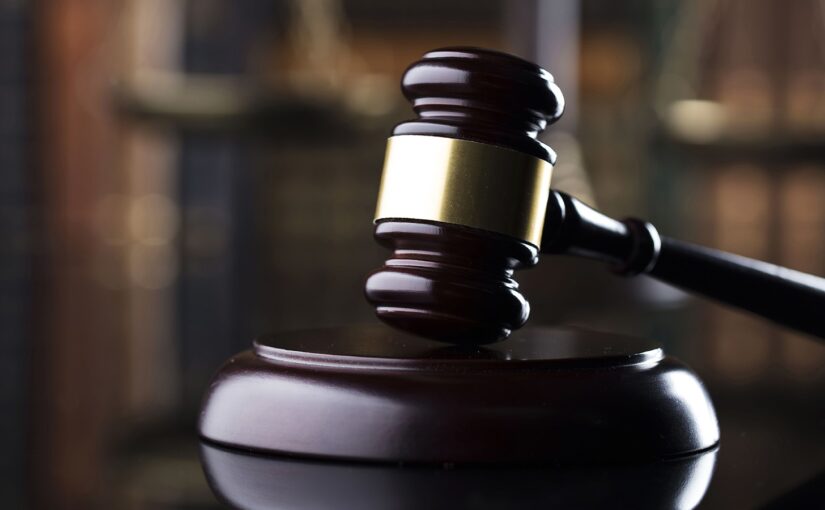Background of the Summoning Order in Kapurthala
The law enforcers in Kapurthala had issued a summoning order that was rooted in a complicated matter calling for judicial scrutiny. This order was not an isolated event but stemmed from a context of alleged legal discrepancies or potentially contentious actions requiring the presence of individuals or representatives to answer before the court or a legal authority. The summoning order could have entailed a range of directives, possibly involving any of the following nuances:
- Factual complexities that required thorough examination by the judicial system.
- Allegations of wrongdoing or misconduct that necessitated a response from the summoned parties.
- The necessity for witness testimonies or expert opinions that could have impacted the direction of the legal proceedings.
- Compliance with procedural norms that mandated the appearance of involved parties at a certain stage in the judicial process.
These summonses served a pivotal role within the legal framework of Kapurthala, ensuring that the rule of law was upheld through due diligence and lawful procedures. The individuals or entities summoned were thus expected to participate according to the legal protocols in place, contributing to the resolution of the matter at hand.
Legal Arguments Presented by the Lawyers
During the proceedings, the lawyers put forth several substantial legal arguments in support of their respective positions. Their presentations sought to persuade the court of the validity of their points or to challenge the premises upon which the summoning order was issued. The legal counsel for the defense and the prosecution utilized various legal precepts and case laws to support their arguments, while simultaneously attempting to dismantle the opposition’s claims.
- Questions regarding jurisdiction and whether the court in Kapurthala had the authority to issue the summoning order were explored.
- The legality and procedural correctness of the summoning order’s contents were reviewed and contested.
- The relevance and appropriateness of the summoning in the context of the alleged infraction were scrutinized.
- Claims of any possible violation of the rights of the individuals or entities being summoned were presented, including potential breaches of privacy or due process.
- The defense might have argued for alternative dispute resolution mechanisms, suggesting that the matter could be settled without the need for court intervention.
- Precedent-setting cases were cited to draw parallels and help the court in determining the appropriateness of the summoning order in question.
- The lawyers presented their clients’ historical compliance with legal requirements, if any, to paint a picture of good faith efforts in adhering to the law.
These arguments formed the backbone of the legal discourse, influenced the way the merits of the case were evaluated by the court, and ultimately, influenced the decision to quash or uphold the summoning order in Kapurthala.
Implications of the Quashing Decision
The decision to quash the summoning order carried noteworthy implications for all parties involved as well as for the legal landscape of Kapurthala. These possible consequences spanned a range of dimensions, from the immediate effects on the summoned individuals to broader legal precedents:
- For the individuals or entities that were summoned, the quashing of the order could have led to significant relief, as it could imply an end or at least a pause in their legal battles. It might have also meant a reduction in the potential legal expenses or reputational harm they were facing.
- The decision could serve as a reference for future cases, providing guidance to the judiciary, lawyers, and the public on the application of the law in similar circumstances. It could shape future summoning orders, clarifying the standards and practices that need to be followed.
- Quashing the order might have raised questions about the adequacy of the existing legal framework, potentially paving the way for legislative or procedural reforms to address gaps or ambiguities exposed during the litigation.
- It could have also impacted how enforcement agencies and judicial bodies view their discretion in issuing summonses, possibly leading to a more cautious approach that meticulously scrutinizes the basis for summoning individuals.
- From a broader perspective, the quashing decision might have influenced public perception of the justice system, either reinforcing or undermining the community’s confidence in legal proceedings and the protection of rights within the judicial process.
- For the court itself, the outcome of the case might have implications for workload management. By setting a precedent on the circumstances under which summonses can be quashed, courts may face fewer frivolous or improperly issued summoning orders in the future.
This judicial turn of events underscored the importance of jurisprudential checks and balances, and elucidated how one decision could ripple through the legal fabric of a community like Kapurthala, impacting practices, perceptions, and policies alike.
List of Most Recommended Lawyers:
1. Advocate Kabir Sharma
- Experience: more than 20 years
- Expertise: Quashing matters
- Practice Area: Criminal Lawyer
2. Advocate Saanvi Shah
- Experience: more than 25 years
- Expertise: Quashing matters
- Practice Area: Criminal Lawyer
3. Advocate Siya Mathur
- Experience: more than 35 years
- Expertise: Quashing matters
- Practice Area: Criminal Lawyer
4. Advocate Ananya Banerjee
- Experience: more than 40 years
- Expertise: Quashing matters
- Practice Area: Criminal Lawyer
5. Advocate Aarushi Jain
- Experience: more than 30 years
- Expertise: Quashing matters
- Practice Area: Criminal Lawyer
6. Advocate Virat Mathur
- Experience: more than 50 years
- Expertise: Quashing matters
- Practice Area: Criminal Lawyer
7. Advocate Myra Desai
- Experience: more than 30 years
- Expertise: Quashing matters
- Practice Area: Criminal Lawyer
8. Advocate Aarush Shah
- Experience: more than 25 years
- Expertise: Quashing matters
- Practice Area: Criminal Lawyer
9. Advocate Aarav Mathur
- Experience: more than 20 years
- Expertise: Quashing matters
- Practice Area: Criminal Lawyer
10. Advocate Aarav Saxena
- Experience: more than 45 years
- Expertise: Quashing matters
- Practice Area: Criminal Lawyer
